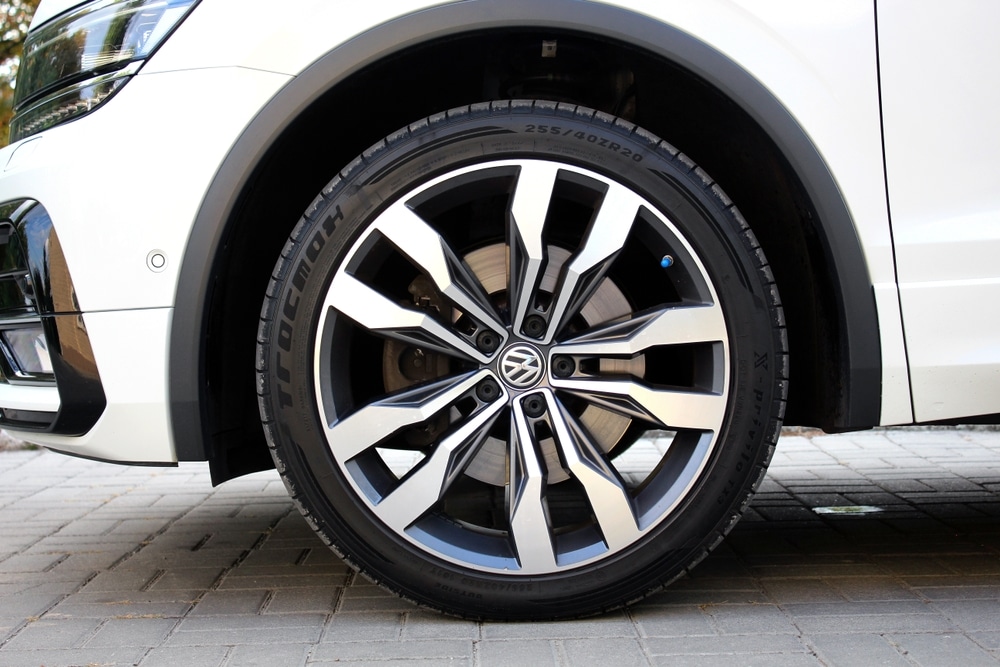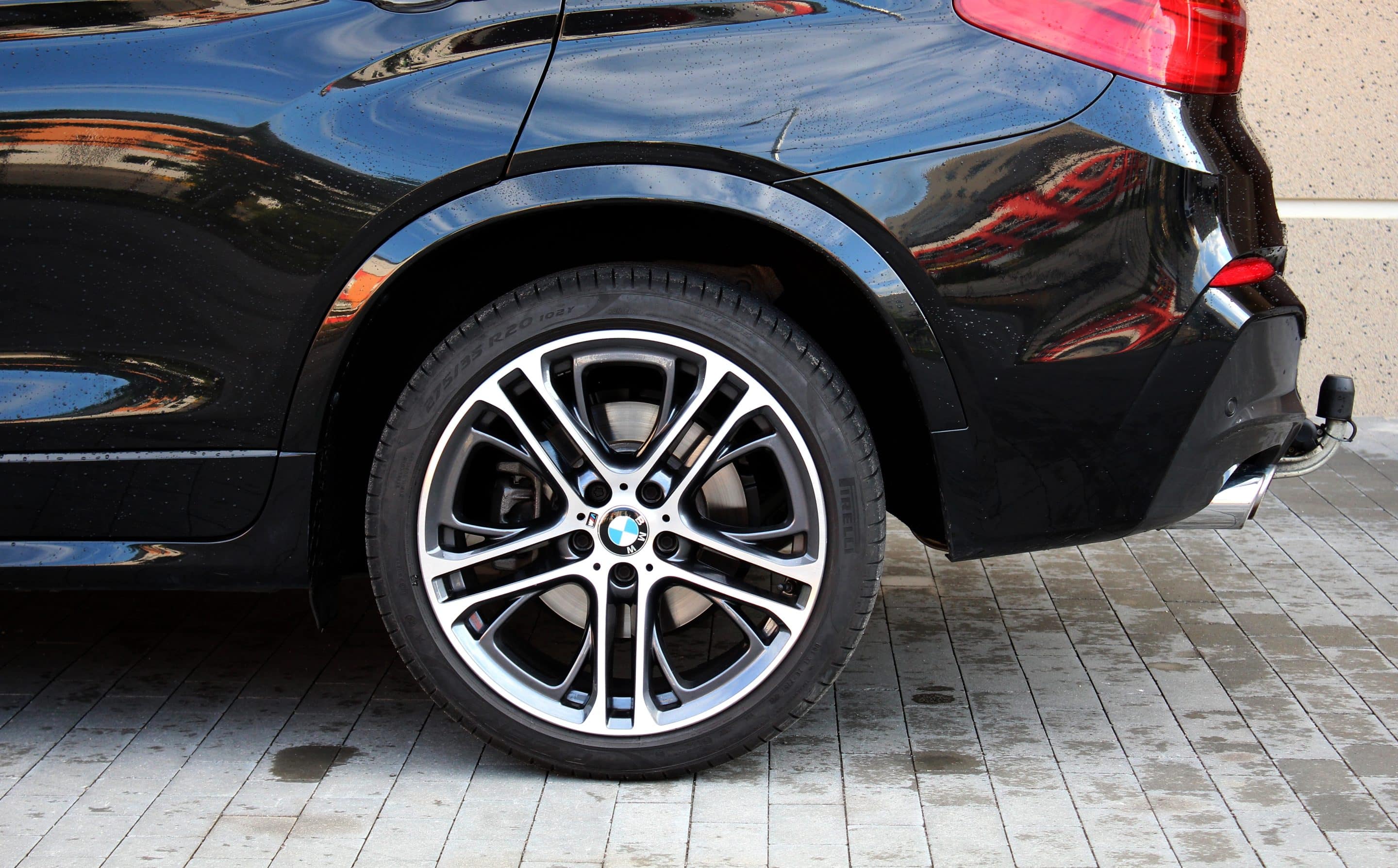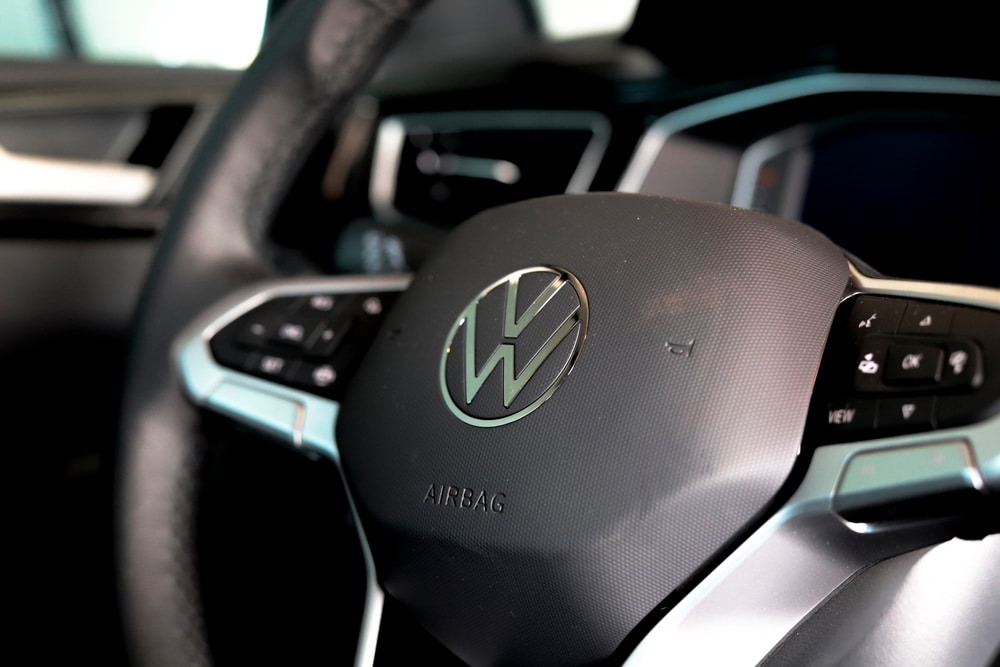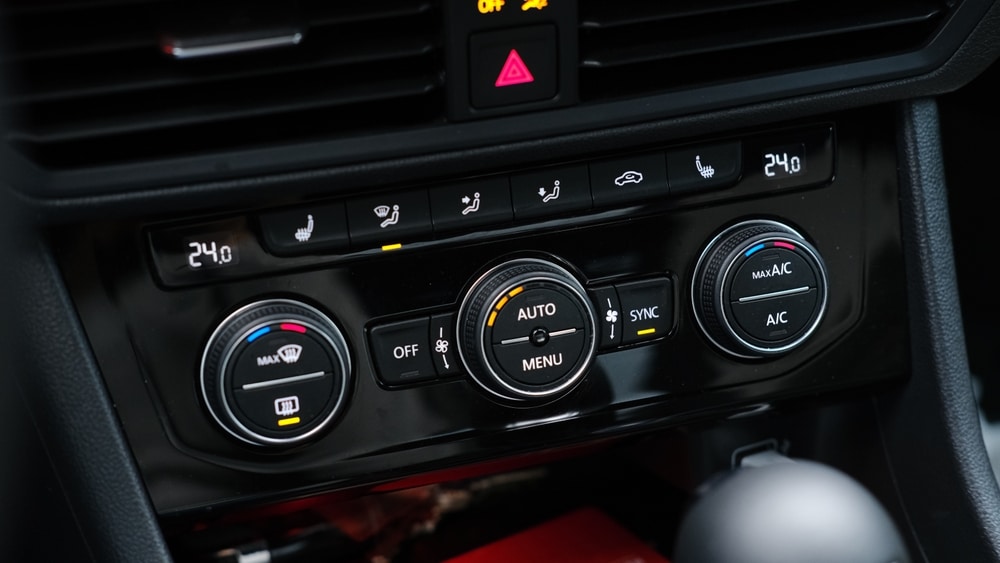Volkswagen Tyre Pressures
Having the correct pressure in your tyres is an easy maintenance task which is often overlooked. As keeping your tyre pressures maintained is so important, you might be wondering, ‘what is the correct tyre pressure for my Volkswagen?’ And ‘what else should I look for when maintaining my tyres?’ We cover all of this, and more, in this article.
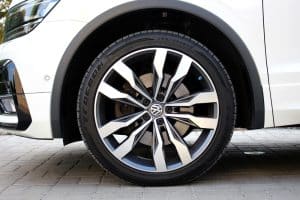
What Happens If My Tyres Are Underinflated In My Volkswagen?
If you’re driving your Volkswagen with underinflated tyres then there are many risks and dangers. Your tyres will wear down quicker, as they are less durable. This will also increase the risk of a sudden puncture. An underinflated tyre will also result in worse fuel economy as the roll resistance has increased. Roll resistance is the force required to turn the wheels, and your Volkswagen has to work harder to rotate the wheels if they are under-inflated. Also if they are just 30% underinflated, it can increase the risk of hydroplaning, which is a real danger on wet roads.
Uneven tread wear also occurs when your tyres are under or over-inflated, this affects handling and reduces traction. Worst of all, your tyres will not be as responsive when you need to swerve in emergencies or brake heavily. To ensure your VW is running smoothly, properly inflated tyres are a must.
Visit JDK Automotive today for all your tyre needs. If you need help checking or topping up your tyres we have the experience and tools to do so. We are proud Volkswagen experts serving the local Blackwater area.
The Recommended Volkswagen Tyre Pressures
You need to inflate your tyres to the correct level as recommended by Volkswagen. Winter tyres may also require different pressures when compared to summer or all-season tyres.
In many Volkswagen models, the engine and transmission are housed at the front and the vehicle is front wheel drive. This means that tyre pressures are typically higher at the front than the rear to ensure proper weight distribution and balance.
If you are not sure what your Volkswagen tyre pressures are, then consult your owner’s manual, or sticker on the inside of the driver’s door. Tyre pressure information may also be found on the fuel filler cap in some models. Feel free to reach out to JDK Automotive if you are unsure, as our specialist Volkswagen team is on hand to assist you.
Checking Your Volkswagen Tyre Pressures – The Tools Required
In modern and high-end Volkswagen models, a Tyre Pressure Monitoring System (TPMS) is fitted. The TPMS is an advanced set of sensors that detect the pressure in each tyre and informs you of any low tyre pressure.
The driver can also see the tyre pressure of each tyre on the driver display screen or centre display. By entering the “vehicle service” or “vehicle settings” menu, scroll down to tyre pressures to display them.
If your vehicle does not have a TPMS, then you can check your tyre pressures manually by using a tyre pressure gauge. Pressure gauges can be found in most petrol stations, or car parts shops where you can buy one to use at home.
Firstly, remove the dust cover on the tyre by unscrewing it. Then use the pressure gauge on the exposed valve and press down firmly to obtain your reading.
Use this reading against the recommended tyre pressure set by Volkswagen (found in the owner’s manual or sticker on the driver’s door). Top up with air if it’s too low or let out some air if the pressure is too high.
When it comes to owners checking their tyre pressure, mistakes are common. This is because pressure gauges can be inaccurate depending on how you use them, and tyres can be too hot or cold which affects the true reading. If you are unsure how to check your tyre pressures then reach out to our team at JDK Automotive to make sure your Volkswagen tyres are safe and properly inflated.
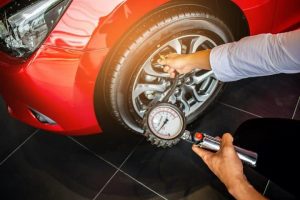
Is The Tyre Pressure Monitoring System (TPMS) Reliable In My Volkswagen?
Yes, generally the Tyre Pressure Monitoring System (TPMS) is reliable in your Volkswagen. The system does need to be properly calibrated though, which we can do at JDK Automotive.
At JDK Automotive, we specialise in all Volkswagen models and can service and maintain your vehicle thanks to decades of experience within our team. To ensure your tyres are working properly, and your TPMS is properly calibrated, reach out to us today and book an appointment.
Making Adjustments To Tyre Pressures Based On Weather and Road Conditions
Climate conditions and temperature changes can affect tyre pressures. Hot weather increases tyre pressure, and cold weather decreases it. You can find your Volkswagen tyre pressures in your owner’s manual, or on the driver’s door sticker. The tyre pressures are usually measured in Bars or Pounds Per Square Inch (PSI).
Throughout the day, your tyre pressures can change as you drive. For high-speed driving, in hot and dry weather, your tyre pressure can increase by up to 10 PSI. Too low a pressure and the lifespan of the tyres is reduced, as the heat builds up more in the rubber. It also increases fuel consumption.
Check your tyre pressures at least once per month to reduce the temperature effects on your tyres. If you are ever unsure about your Volkswagen tyres, then reach out to JDK Automotive and our friendly team can help.
Seven Ways To Maintain Your Volkswagen Tyres To Make Them Last Longer
Maintenance is essential when it comes to tyres. As tyres are responsible for your handling, safety and fuel economy and can make your driving experience smoother. At JDK Automotive, we specialise in Volkswagen vehicles and help owners with their tyre maintenance and servicing.
To ensure your tyres are kept in optimal condition, consider these tips:
- Inspect your tyres: Ensure the safety of your Volkswagen by checking for bulges, cuts, or objects embedded in the tyres that may require professional attention. If you experience a puncture while driving, pull over and switch to your spare wheel promptly.
- Examine your tyre tread depth: There’s a legal minimum tread depth of 1.6mm in the UK. Falling below this threshold can result in a fine of up to £2,500 and three points on your licence per wheel. If your Volkswagen’s tyre tread approaches or falls below the 1.6mm limit, consider replacing them.
- Choose the appropriate tyres: All-weather tyres provide reliable performance throughout the year and are commonly preferred. However, in certain European countries with more extreme weather conditions, drivers may need to switch between summer and winter tyres.
- Confirm wheel alignment: Incorrect wheel alignment can lead to uneven tyre wear, causing tyre damage, increased fuel consumption, and impacting your control of the Volkswagen.
- Monitor the maximum load: Overloading your car can result in excessive tyre wear and compromise the vehicle’s handling. Tyres often have a load index, and it is crucial not to exceed the specified load limit.
- Be cautious around kerbs: Avoiding one of the primary causes of tyre damage involves taking care when encountering or mounting kerbs. When parking roadside, slow down and manoeuvre carefully to prevent your Volkswagen’s tyres from hitting the kerb.
- Adopt safe driving habits: Minimise heavy braking, accelerate gradually, ensure smooth transitions, steer clear of bumps, potholes, and road undulations, and reduce speed for speed bumps whenever possible.
You can keep your tyres maintained by following these steps. If you need tyre advice, checks or a top-up in pressure then be sure to reach out to us today at JDK Automotive, your local Volkswagen specialists.
